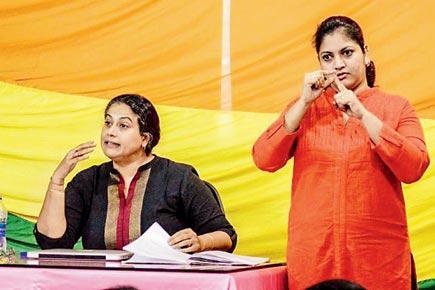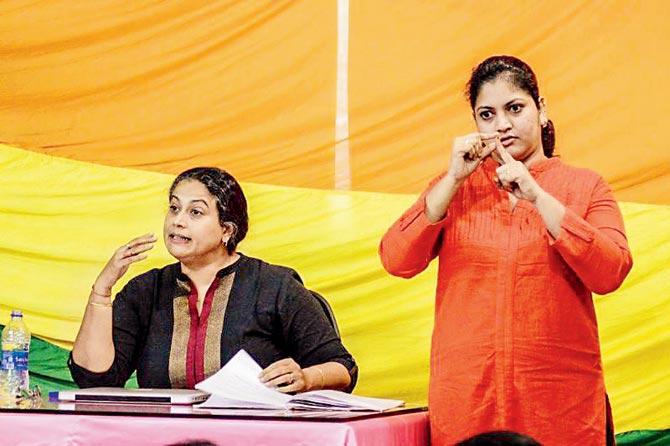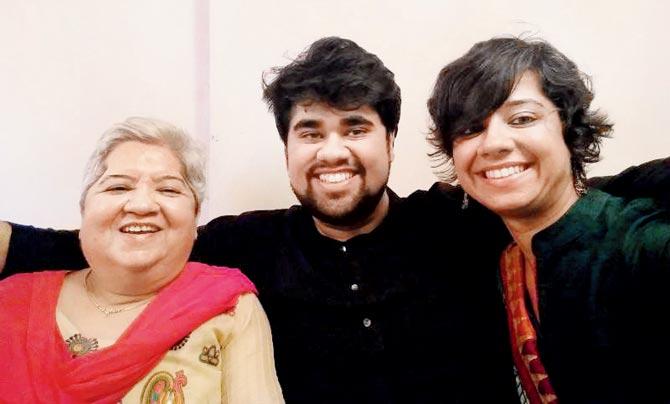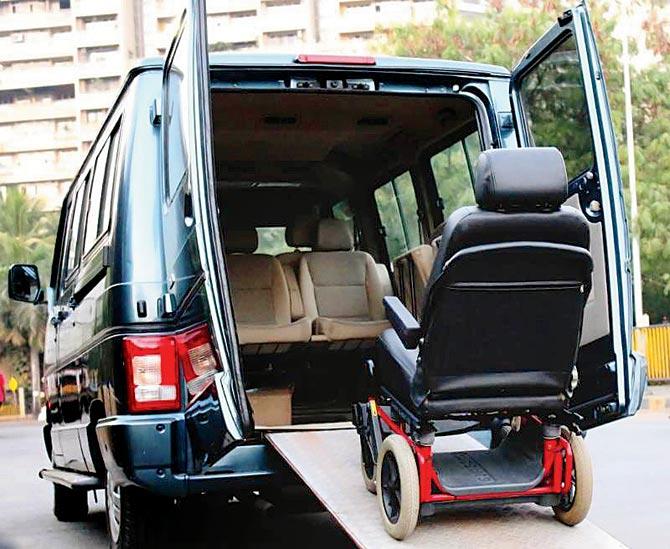This year’s pride parade will have volunteers accompanying each disabled queer or LGBTQ ally during the march; aim is to get the disabled queer to come out of the closet


A translator shows how volunteers will help out participants this Saturday
ADVERTISEMENT
This Saturday’s pride parade, an annual walk by the city’s lesbian, gay, bisexual, transgender and queer (LGBTQ) community and its allies, will serve up a much-needed lesson on inclusivity: that disabled queer persons need to acknowledged, too.
For the first time, volunteers will accompany each disabled queer or LGBTQ ally during the course of the walk.

Sanjana Aswani (right) started MobiCab with her brother Gautam (centre) after seeing the trouble her wheelchair-bound mother had to go through while getting in and out of cabs
“We are, in our way, trying to create and convey ideas on accessibility, making the walk a little more welcoming for the disabled,” said Nidhi Goyal, programme director of sexuality and gender of NGO Point of View, at a sensitisation workshop at her Bandra office yesterday for volunteers assisting the disabled at the pride walk.

A cab from MobiCab’s fleet
Most disabled-friendly
Right from releasing pamphlets written in Braille to having translators assigned for street plays and free cab pick-ups for the disabled, this year’s pride month has proved to be the most disabled-friendly. “Apart from having translators for speeches and street plays, we have assigned students to accompany each disabled person at the walk. In a crowd of thousands, it becomes extremely difficult for them to march,” said Koninika Roy of Humsafar Trust, which champions the rights of the LGBTQ community.
Also, an L-shaped 16-foot-long ramp will be provided to the stage at the pride parade.
“Earlier, we had to seek help to attend workshops and plays. But now, it’s become much easier. We are really excited,” said Nisar, who is hearing impaired who is raring to take part in the Pride Parade.
Still in the closet
Goyal explained that the plan to have a more disabled-friendly event was born out of the realisation during past projects that a number of disabled queer women refuse to come out of the closet since they are either in a state of confusion or in denial owing to scarcity of public representation of other such women. “A woman in a wheelchair can also be a lesbian. We need to understand and welcome that,” she said.
Sanjana Aswani (34), who launched MobiCab, a fleet of cabs modified to make travel easier for wheelchair users which will ferry queer persons and allies for free on Saturday, said a queer woman with a disability lies at the complex intersection of gender marginalisation, sexuality and disability, which makes it all the more difficult to come out.
“I have been going to the pride walk for the last two years. For me, the Pride Parade is about people asserting their rights. People with disabilities have as much a right to public space as every other citizen of this country, and for us, this is a great way to combine the two.”
For her, the issue of accessibility hit home when she realised that her wheelchair-bound mother, struggled to get in and out of cabs. “Mobicab is about supporting the rights of people with disabilities”, said Aswani, who started MobiCab two months ago with brother Gautam, after quitting as a computer engineer.
Roy said each year’s Pride Parade fell short of total inclusiveness by failing to address the issue of disability. “So this year, we are going all out for inclusiveness. We just put up a video where a translator is inviting people to come for the pride walk. The response has been overwhelming.”
 Subscribe today by clicking the link and stay updated with the latest news!" Click here!
Subscribe today by clicking the link and stay updated with the latest news!" Click here!






